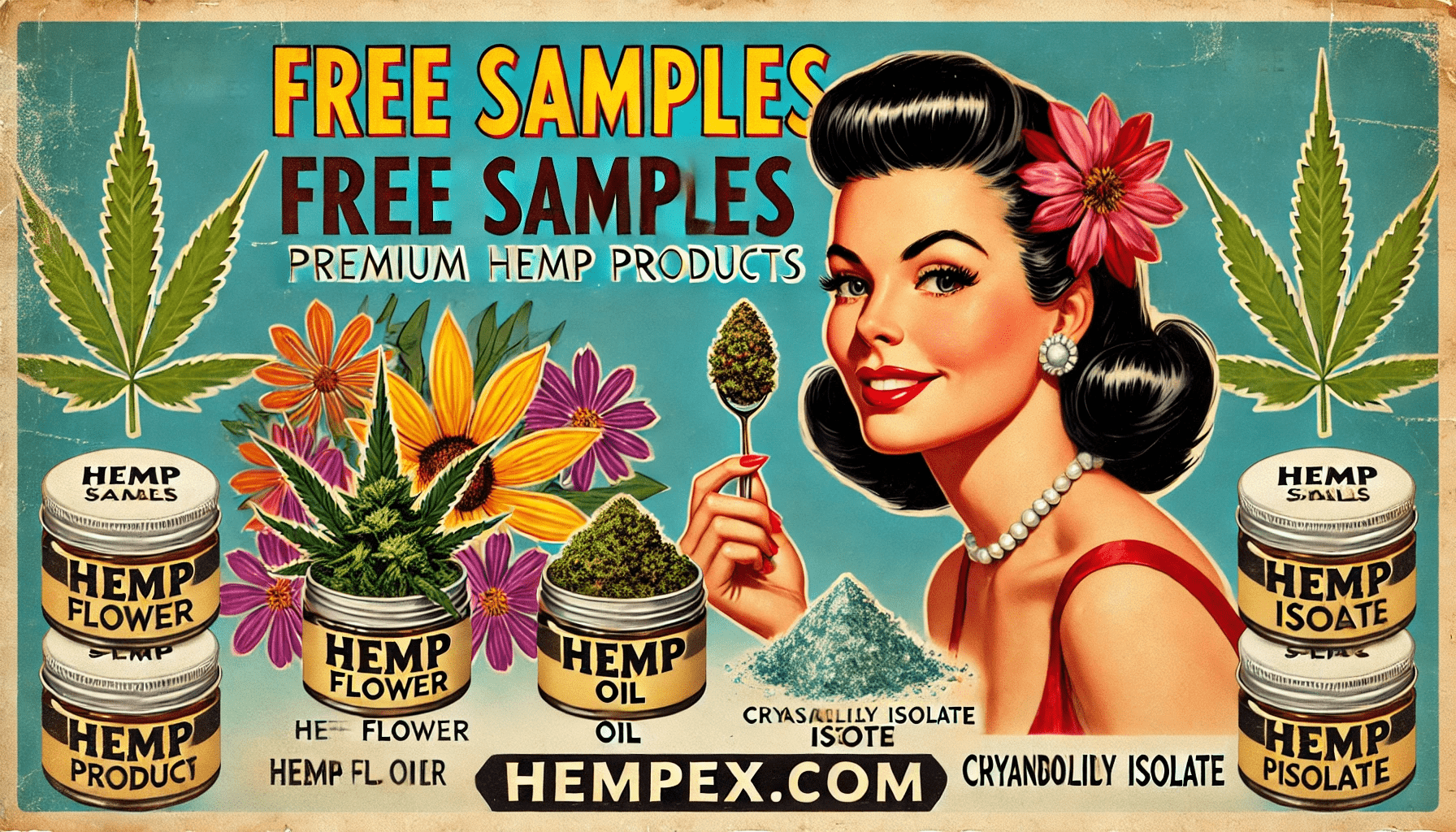THCA Hemp Flower Legal Loophole: Understanding the THCA “Loophole” and What the Farm Bill Says About It
The evolving landscape of hemp legislation has introduced a series of intriguing developments, particularly around THCA (Tetrahydrocannabinolic Acid) and its conversion into THC (Tetrahydrocannabinol). This legal grey area, often referred to as the THCA loophole, has been a source of controversy and confusion in the hemp industry. THCA is non-psychoactive in its raw form but converts into psychoactive THC when heated, sparking debate about whether THCA-rich hemp flower should be classified and regulated like marijuana.
This blog post will delve into the THCA loophole, what the 2018 Farm Bill says about it, how it impacts pre-harvest testing, and how hemp farmers deal with high THC plants during compliance testing. We’ll also explore how the industry has evolved from the early days when entire hemp fields were destroyed due to non-compliance.
What Is THCA and Why Does It Matter?
THCA is the acidic precursor to THC, the compound responsible for the psychoactive effects commonly associated with marijuana. In its raw form, THCA is non-psychoactive, meaning it won’t cause a “high” if consumed raw (e.g., in smoothies or tinctures without heating). However, when THCA is exposed to heat—through smoking, vaping, or cooking—it undergoes a process called decarboxylation, converting it into THC.
This conversion is the crux of the THCA loophole because the 2018 Farm Bill only regulates the Delta-9 THC content in hemp, not THCA. This omission has allowed some producers to sell THCA-rich hemp flower that complies with the Farm Bill in its raw form but can produce psychoactive effects once heated.
The 2018 Farm Bill and the Definition of Hemp
The 2018 Farm Bill, which legalized hemp in the U.S., defines hemp as:
“The plant Cannabis sativa L. and any part of that plant, including the seeds thereof and all derivatives, extracts, cannabinoids, isomers, acids, salts, and salts of isomers, whether growing or not, with a Delta-9 THC concentration of not more than 0.3 percent on a dry weight basis.”
The key element here is the 0.3% Delta-9 THC limit. This definition specifically refers to Delta-9 THC, the active form of the compound that produces psychoactive effects. The Farm Bill does not regulate THCA, which remains non-psychoactive until it is heated and converted into Delta-9 THC.
This distinction creates the THCA loophole, allowing THCA-rich hemp flower to be legally sold under the guise of compliance. However, if the hemp is heated or processed, the THCA converts into THC, resulting in a product that behaves much like marijuana.
The THCA Legal Loophole: How It Works
The THCA loophole hinges on the fact that the 2018 Farm Bill only regulates Delta-9 THC content. As a result, hemp flower that contains high levels of THCA but less than 0.3% Delta-9 THC in its raw form is considered compliant with federal law. However, when this flower is decarboxylated (through smoking, vaping, or cooking), the THCA is converted into THC, potentially leading to psychoactive effects.
Here’s how the loophole works in practice:
1. THCA-Rich Hemp Flower: Farmers grow hemp strains that are rich in THCA but contain less than 0.3% Delta-9 THC in their raw form. These hemp plants are harvested, tested, and sold as hemp flower in compliance with federal law.
2. Consumer Use: When consumers purchase this THCA-rich hemp flower and smoke or vape it, the THCA is converted into Delta-9 THC, producing psychoactive effects similar to marijuana.
3. Legal Compliance: Since the product contains less than 0.3% Delta-9 THC at the time of sale, it remains compliant with the 2018 Farm Bill. However, the product’s psychoactive potential once heated raises questions about how such products should be regulated.
Pre-Harvest Testing and High THC Hemp
Under the 2018 Farm Bill, hemp farmers are required to have their crops tested before harvest to ensure they do not exceed the 0.3% Delta-9 THC limit. This pre-harvest testing is critical in determining whether a hemp crop is compliant with federal law.
THCA-rich strains, despite their potential to convert into Delta-9 THC upon decarboxylation, must still pass pre-harvest testing by containing less than 0.3% Delta-9 THC on a dry weight basis. This requirement has significant implications for farmers who grow hemp for flower production.
The Issue of “Hot” Hemp: What Happens When THC Levels Exceed 0.3%?
Hemp plants that exceed the 0.3% Delta-9 THC threshold during pre-harvest testing are often referred to as “hot” hemp. This can occur for various reasons, including environmental factors, genetics, and growing conditions. When a crop tests “hot,” it is considered non-compliant and illegal under federal law.
In the early years of the hemp industry, many farmers faced devastating consequences when their crops tested “hot.” In some cases, entire fields of hemp had to be destroyed, as non-compliant plants could not legally be harvested or sold. Farmers were forced to burn or plow under their crops, leading to significant financial losses.
How Farmers Manage THC Compliance Today
The hemp industry has evolved since those early days, and there is now more awareness and management of the risk of “hot” hemp. Here are some of the strategies farmers use to avoid failing pre-harvest testing:
1. Strain Selection: Farmers are increasingly selective about the hemp strains they grow. Many opt for low-THC, high-CBD strains that are less likely to exceed the 0.3% Delta-9 THC threshold. Breeders have developed strains specifically for compliance, reducing the risk of growing hemp that turns “hot.”
2. Field Testing: Many farmers now conduct their own field testing throughout the growing season to monitor THC levels in their crops. By testing plants at various stages of growth, farmers can identify potential issues early and take corrective action before the official pre-harvest test.
3. Harvest Timing: THC levels in hemp can fluctuate depending on the plant’s growth stage. By carefully timing their harvests, farmers can minimize the risk of THC levels rising above the legal limit. Harvesting early, before THC levels spike, can be an effective way to stay compliant.
4. Post-Harvest Processing: In some cases, farmers may attempt to process their hemp to remove excess THC after harvest. However, post-harvest processing is more commonly used to ensure that extracted products remain compliant, as opposed to salvaging “hot” flower.
Leniency in Post-Harvest Testing
While pre-harvest testing remains strict, there has been some leniency in how post-harvest hemp is managed. Farmers and processors have more flexibility in ensuring their final products meet compliance standards, especially when it comes to extracts and oils.
For example, post-harvest CBD extraction can involve further processing that reduces THC levels in the final product. This allows for some leeway in the processing stage, provided that the end product still meets the 0.3% Delta-9 THC limit.
No Leeway for High THCA Strains in Pre-Harvest Testing
However, despite the leniency in post-harvest processing, there is no leeway for farmers growing high THCA strains that are intended for flower production. These strains are subject to the same pre-harvest testing standards as any other hemp plant, and if their Delta-9 THC content exceeds 0.3% at the time of testing, they will fail the compliance test.
This is particularly challenging for farmers growing hemp for smokable flower, as the THCA-rich strains that are popular among consumers can easily turn “hot” before harvest. In these cases, the crop must be destroyed or remediated, leaving farmers with few options.
Conclusion: The Future of the THCA Loophole
The THCA loophole has created a unique situation in the hemp industry, allowing THCA-rich hemp flower to be legally sold despite its potential to convert into THC once consumed. While the 2018 Farm Bill focuses on Delta-9 THC content, the omission of THCA has left room for interpretation, leading to the proliferation of THCA-rich hemp products.
However, this legal grey area is not without its challenges. High THCA hemp strains still face strict scrutiny during pre-harvest testing, and farmers must remain vigilant to ensure their crops comply with federal law. As the industry continues to evolve, it is likely that THCA regulation will become a more prominent issue, potentially leading to new legislation or amendments to the Farm Bill.
At Hempex, we are committed to providing legal, compliant low THC hemp flower that meets all federal and state regulations. Explore our selection of hemp products



